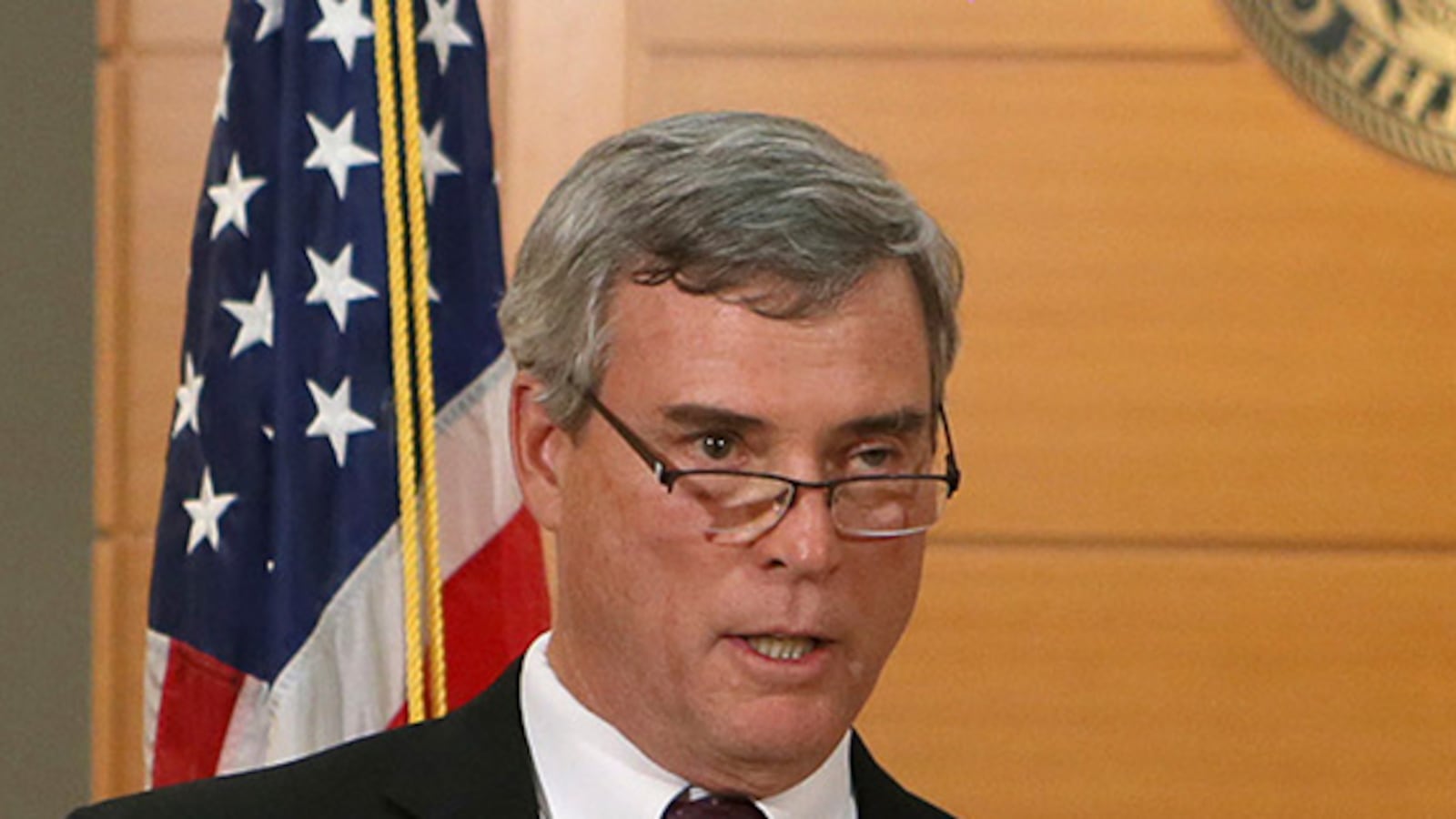St. Louis County Prosecutor Bob McCulloch’s announcement of his failure to secure the indictment of Officer Darren Wilson in the Aug. 9 shooting death of unarmed teen Michael Brown has openly and shamelessly mocked our criminal justice system and laid bare the inequality that is emblematic of criminal jurisprudence in the United States. Monday night’s farcical performance during McCulloch’s press conference, at which he announced the grand jury’s “no true bill” decision, was a failed and poor attempt to convince the residents of Ferguson, St. Louis County, and the nation of the legitimacy and fairness of the grand jury process.
Let’s be candid and clear about grand juries in the United States: They are at all times completely and unalterably under the control and direction of the prosecutor. If the prosecutor wishes to secure an indictment, a “true bill” is inevitably returned. It is extraordinarily rare for a grand jury to override the prosecutor’s intention to obtain an indictment. In my 27 years as a police officer in Boston, I have never heard of a situation in which a prosecutor failed to secure an indictment when seeking such—plainly put: It doesn’t happen. That McCulloch failed to obtain an indictment of Wilson means only one thing: He did not want to obtain an indictment. It had nothing whatsoever to do with the evidence and everything to do with the prosecutor’s unwillingness to try the case in court and his reluctance to incur the wrath of the law-enforcement community to which he is so incestuously tethered.
Prosecutors provide explanations to grand jurors regarding legal definitions of the various crimes that they can consider in deciding what indictments, i.e. charges that grand juries return against those who they are investigating. In other words: Prosecutors direct grand juries whom specifically to charge with what particular crime. Prosecutors do not put cases before grand juries that they do not strongly believe will result in guilty convictions at trial, and they have to be convinced, prior to the presentation of evidence to the grand jury, that there is sufficient evidence in the case to obtain a guilty conviction of the target of the indictment. In other words, you wouldn’t bring a case to a grand jury unless you already believed the case would stand up in trial.
McCulloch’s decision to allow the target of a grand jury investigation to actually testify before that grand jury is practically unheard of—in my 36 years as a practitioner and an academic working, studying, and teaching in the criminal-justice system, I have never heard of this rather novel legal maneuver being put into what many would consider a rather imprudent and questionable practice. Targets of grand jury investigations, like Wilson, are typically not even aware that they are under grand jury investigation, let alone invited to testify. Targets of grand jury investigations have no legal “right” to testify in these proceedings, so it is fair to question why the prosecutor in this rather notorious case thought that this was a good idea.
Further, that this case went to a grand jury at all in the first place was largely in deference to Wilson’s status as a police officer. The prosecutor has the option to bring charges against a defendant directly before a judge without invoking the grand jury process at all. This happens all the time; in fact if the outcome in this case had been the death of Wilson and not Brown, Brown would have no doubt been charged before a court the very next day, without the benefit of a months’ long grand jury investigation. Had Brown killed Wilson and not the other way around, Brown would have spent these past months languishing in jail awaiting trial, not collecting a paycheck and planning his wedding.
The standards of criminal liability to which police officers are held, specifically in use of deadly force incidents, are significantly lower than those standards used to assess criminal responsibility in those of us who are not, in Bittner’s terms, “the bearers of non-negotiable force.” It seems clear that the legal standards of “probable cause” and “proof beyond a reasonable doubt” have markedly different applications for law-enforcement officers, perhaps owing at least in part, I will argue, to the public’s image of the netherworld of policing as being fraught with constant and never-ending danger, violence, and peril. The mainstream media and the popular culture depict and fuel this collective persona of law-enforcement officers as the lone warriors against the ubiquitous forces of evil and darkness. For in the police world, as well as in the larger society, evil too often has a dark face. The police themselves do little to dispel or discourage this lionized portrayal.
For the large part, the activities of the police in the “performance of their duties” are conducted almost entirely out of the public eye and are largely shielded from observation and evaluation by interlopers who might question their legitimacy and efficacy. Thus when the police shoot and kill say, an unarmed man, it is for most of us, including those who may be called to sit upon a grand jury, the first glimpse that we have into the world of the police. For us, the police embrace nothing if not working- and middle-class values and morality. In Ferguson, these values are seen as white values, the morality a white morality. These values privilege a “good vs. evil” dichotomy in which the police are on the “good” side; those who come into contact and confrontation with the police are always and already on the “evil” side. Framed in this light, it becomes easy to see how low the standard of criminal liability sinks when seeking to assign culpability to those who we believe keep us safe from “evil.”
The community in Ferguson and the public at large would have been far more satisfied with the criminal-justice process had this case gone to trial before a judge or a jury, even if the charge was involuntary or voluntary manslaughter, and even if it resulted in an acquittal of Darren Wilson. What we are seeing on the streets is a manifestation of our collective frustration and outrage that Michael Brown will never see his day in court—at least not in St. Louis County.






